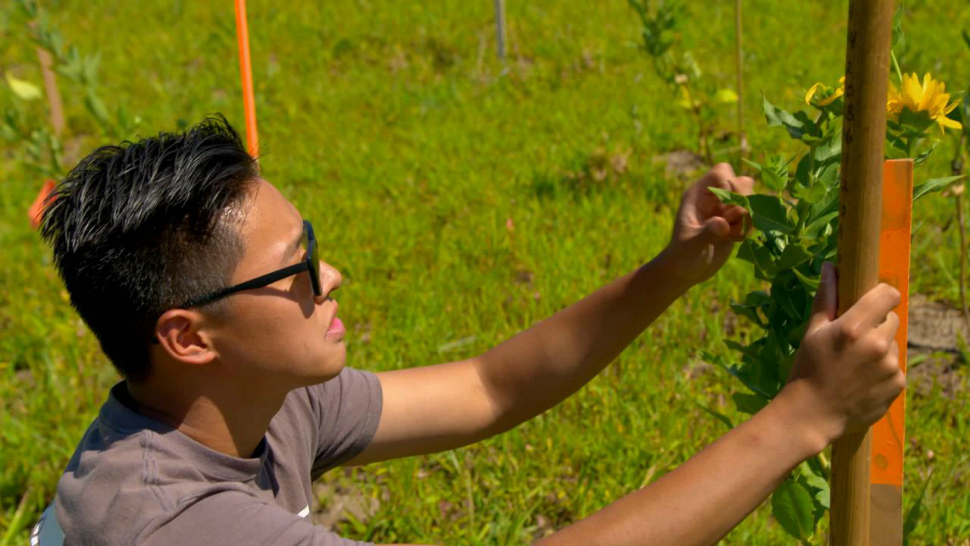John Tolley, November 20, 2016
The Problem
The American Midwest, one of the world?s most productive breadbaskets, once grew a rich diversity of crops. But since World War II the number of different vegetables and grains grown there has dwindled. Now the landscape is dominated by only a handful of crops, chief among them corn and soybeans.
While profitable to farmers, these crops and the overall lack of diversity have proved to be less than exemplary for the ecosystem.
?These crops are winter annuals; they are summer annuals that are only on the landscape for three months,? says Dr. Don Wyse, Professor of Agronomy and Plant Genetics at the University of Minnesota. ?This leaves the spring and fall of the growing season barren and open for soil erosion and the leeching of nutrients into ground water and surface water.?
The Idea
To combat the myriad problems of the near monoculture of Midwestern farming, the University of Minnesota has launched the Forever Green Initiative.
?The Forever Green Initiative deals with 15 different crops that are environmentally friendly and sustainable,? says Dr. Pam Ismail, Associate Professor of Food Science at Minnesota.
Together, food scientists, plant breeders and agronomists are developing a new generation of crops that will suit the needs of the future. As Ismail explains, the Initiative?s crops are safe, meaning they are free of toxins, rich in nutrients such as protein and fiber, storage stable and flavorful.
Moreover, the crops are perennials that stay on the land for years without need for reseeding or plowing fields. This translates to more efficient farming and overall protection of the land as perennials protect and store soil and water.
Next Steps
The scientists of the Forever Green Initiative, in conjunction with The Land Institute, are working on domesticating the perennial Kernza, a grain similar to wheat but with a higher nutritive protein content.
?Kernza is one of the most important perennial crops that we currently have under development,? says Wyse, who adds that, in the face of extreme, global-warming related weather, year-round plants are all the more necessary. ?As we have intense rain events, the crop is always there to protect the soil.?
All of this would be in vain if farmers couldn?t sell these new crops. That?s why the Forever Green Initiative works closely with food industry partners at the micro and macro scale to make sure that there will be a market for the crops they are developing. In addition to several restaurants, Wyse says that major partners like Patagonia Provisions and General Mills have shown interest in working with Kernza.

?What?s so exciting about the incorporation of Kernza into foods is it gives the consumer the opportunity to purchase a food product that is not only healthy for them, but is also healthy for the landscape.?







